Transnationalism, Education and Empowerment: The Latent Legacies of Empire: Routledge Research in Education
Autor Niranjan Casinaderen Limba Engleză Paperback – 25 iul 2018
The book begins by exploring the meaning of transnationalism, arguing that it needs to be redefined to meet the realities of past and current global societies. It then moves on to examine the ways education was used within the period of 18th and 19th century European colonialism, with a particular emphasis on Sri Lanka and other parts of the former British Empire. Drawing from examples of his own family’s ancestry, Casinader then discusses how some marginalised groups in parts of the British Empire were able to use education as the key to unlocking their pre-existing transnational dispositions in order to create pathways for more prosperous futures. Rather than being subjugated by colonial education, they harnessed the educational aspects of British colonial education for their own goals.
This book is one of the first to contest and critically evaluate the contemporary conceptualisation of transnationalism, particularly in the educational context. It will be of key interest to academics, researchers and postgraduate students in the fields of education, the history of education, imperial and colonial history, cultural studies and geography.
| Toate formatele și edițiile | Preț | Express |
|---|---|---|
| Paperback (1) | 394.02 lei 6-8 săpt. | |
| Taylor & Francis – 25 iul 2018 | 394.02 lei 6-8 săpt. | |
| Hardback (1) | 1052.18 lei 6-8 săpt. | |
| Taylor & Francis – 2 feb 2017 | 1052.18 lei 6-8 săpt. |
Din seria Routledge Research in Education
-
 Preț: 302.68 lei
Preț: 302.68 lei - 9%
 Preț: 935.34 lei
Preț: 935.34 lei -
 Preț: 304.16 lei
Preț: 304.16 lei -
 Preț: 290.72 lei
Preț: 290.72 lei -
 Preț: 303.87 lei
Preț: 303.87 lei -
 Preț: 303.11 lei
Preț: 303.11 lei -
 Preț: 311.41 lei
Preț: 311.41 lei -
 Preț: 304.82 lei
Preț: 304.82 lei -
 Preț: 276.13 lei
Preț: 276.13 lei -
 Preț: 303.87 lei
Preț: 303.87 lei -
 Preț: 311.41 lei
Preț: 311.41 lei -
 Preț: 377.83 lei
Preț: 377.83 lei - 8%
 Preț: 381.60 lei
Preț: 381.60 lei -
 Preț: 310.65 lei
Preț: 310.65 lei - 8%
 Preț: 381.99 lei
Preț: 381.99 lei -
 Preț: 303.87 lei
Preț: 303.87 lei -
 Preț: 303.74 lei
Preț: 303.74 lei -
 Preț: 147.15 lei
Preț: 147.15 lei -
 Preț: 402.45 lei
Preț: 402.45 lei - 9%
 Preț: 867.49 lei
Preț: 867.49 lei -
 Preț: 129.91 lei
Preț: 129.91 lei - 5%
 Preț: 140.52 lei
Preț: 140.52 lei -
 Preț: 310.08 lei
Preț: 310.08 lei -
 Preț: 364.04 lei
Preț: 364.04 lei -
 Preț: 280.61 lei
Preț: 280.61 lei -
 Preț: 351.06 lei
Preț: 351.06 lei -
 Preț: 402.02 lei
Preț: 402.02 lei - 18%
 Preț: 1116.74 lei
Preț: 1116.74 lei - 18%
 Preț: 1060.52 lei
Preț: 1060.52 lei -
 Preț: 397.75 lei
Preț: 397.75 lei - 18%
 Preț: 1221.80 lei
Preț: 1221.80 lei - 18%
 Preț: 1110.74 lei
Preț: 1110.74 lei - 18%
 Preț: 1053.92 lei
Preț: 1053.92 lei - 18%
 Preț: 1162.84 lei
Preț: 1162.84 lei - 18%
 Preț: 1063.65 lei
Preț: 1063.65 lei - 25%
 Preț: 851.82 lei
Preț: 851.82 lei - 18%
 Preț: 1062.62 lei
Preț: 1062.62 lei - 18%
 Preț: 1058.10 lei
Preț: 1058.10 lei - 18%
 Preț: 1178.85 lei
Preț: 1178.85 lei - 18%
 Preț: 1112.21 lei
Preț: 1112.21 lei - 18%
 Preț: 1057.75 lei
Preț: 1057.75 lei -
 Preț: 489.03 lei
Preț: 489.03 lei - 18%
 Preț: 1059.14 lei
Preț: 1059.14 lei - 18%
 Preț: 1050.09 lei
Preț: 1050.09 lei - 18%
 Preț: 1060.52 lei
Preț: 1060.52 lei - 18%
 Preț: 1062.98 lei
Preț: 1062.98 lei - 18%
 Preț: 1056.28 lei
Preț: 1056.28 lei - 18%
 Preț: 1217.63 lei
Preț: 1217.63 lei - 18%
 Preț: 1060.19 lei
Preț: 1060.19 lei
Preț: 394.02 lei
Nou
Puncte Express: 591
Preț estimativ în valută:
75.43€ • 77.62$ • 63.58£
75.43€ • 77.62$ • 63.58£
Carte tipărită la comandă
Livrare economică 28 februarie-14 martie
Preluare comenzi: 021 569.72.76
Specificații
ISBN-13: 9781138325791
ISBN-10: 1138325791
Pagini: 168
Ilustrații: 4 Line drawings, black and white; 1 Halftones, black and white
Dimensiuni: 156 x 234 x 9 mm
Greutate: 0.25 kg
Ediția:1
Editura: Taylor & Francis
Colecția Routledge
Seria Routledge Research in Education
Locul publicării:Oxford, United Kingdom
ISBN-10: 1138325791
Pagini: 168
Ilustrații: 4 Line drawings, black and white; 1 Halftones, black and white
Dimensiuni: 156 x 234 x 9 mm
Greutate: 0.25 kg
Ediția:1
Editura: Taylor & Francis
Colecția Routledge
Seria Routledge Research in Education
Locul publicării:Oxford, United Kingdom
Public țintă
Postgraduate and ProfessionalCuprins
1. Transnationalism: Reconfigurations of past and present
2. Education and Transnationalism
3. The British Empire: An imaginary of dualities and contradictions
4. Education in Pre-Colonial Sri Lanka: Pre-conceptions and suppositions
5. Colonial Sri Lanka: Religion, sovereignty and the education of Empire
6. Movements of Mind and Body: A transnationalist story
7. Re-imagining Transnationalism: Trans-spatiality and implications for teaching, learning and beyond
2. Education and Transnationalism
3. The British Empire: An imaginary of dualities and contradictions
4. Education in Pre-Colonial Sri Lanka: Pre-conceptions and suppositions
5. Colonial Sri Lanka: Religion, sovereignty and the education of Empire
6. Movements of Mind and Body: A transnationalist story
7. Re-imagining Transnationalism: Trans-spatiality and implications for teaching, learning and beyond
Notă biografică
Niranjan Casinader is Senior Lecturer in Education (Curriculum and Assessment) in the Faculty of Education at Monash University, Australia. Originally trained as a geographer, he worked as a secondary school educator for many years before moving into academia. His research is focused on three related principal strands: the notion of transnationalism in education, particularly in relation to the impact of culture on curriculum, pedagogy and thinking; the teaching of Geography and other Humanities subjects in schools; and the role of education in British colonial policy and practice, with an especial focus on its relevance to contemporary society.
Recenzii
‘In recent years, the idea of transnationalism has entered registers of education in ways that are both insightful and productive, but also confusing and sometimes exaggerated. Using personal narratives, historical accounts and sociological imagination, this book is most helpful in not only clearing the debris of the recent literature on transnationalism, but also in suggesting ways we might rethink the curriculum and promote new approaches to pedagogy, to meet the requirements of the politics of cultural difference that can no longer be overlooked anywhere.’ - Fazal Rizvi, Professor of Global Studies in Education, The University of Melbourne, Australia
‘Transnationalism is characterised by tensions and contradictions, as well as hybrid and often mercurial phenomena. Consequently, it is a complex and often challenging field of study. However, this book provides new insights - both scholarly and personal in nature - to advance holistic and provocative educational responses to teaching and learning in culturally diverse environments.
An excellent companion to his first book, Dr. Casinader advances his unique approach to re-imagining transnationalism and its implications for teaching and learning.’ - Lucas Walsh, Associate Professor and Associate Dean, Faculty of Education, Monash University, Australia
‘Transnationalism is characterised by tensions and contradictions, as well as hybrid and often mercurial phenomena. Consequently, it is a complex and often challenging field of study. However, this book provides new insights - both scholarly and personal in nature - to advance holistic and provocative educational responses to teaching and learning in culturally diverse environments.
An excellent companion to his first book, Dr. Casinader advances his unique approach to re-imagining transnationalism and its implications for teaching and learning.’ - Lucas Walsh, Associate Professor and Associate Dean, Faculty of Education, Monash University, Australia
Descriere
This book challenges the existing notion that transnationalism is fundamentally concerned with an action; the spatial movement of people. Instead, it argues that transnationalism incorporates a mindset that has evolved over the centuries, and was psychologically manifested, if dormant, in colonised populations. Each chapter of the book focuses upon educational transnationalism as a means of empowerment for groups throughout the British Empire, and how it became, and remains, the tool for liberation by marginalised groups within formerly colonised societies.
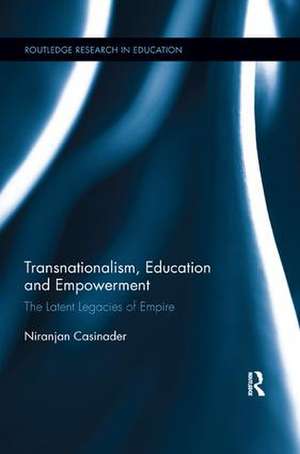

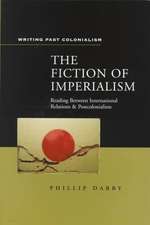


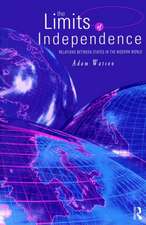
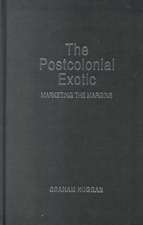
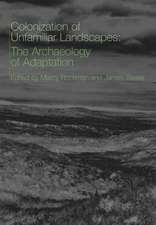
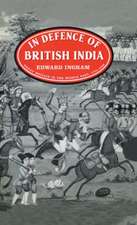
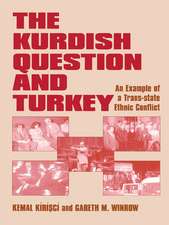
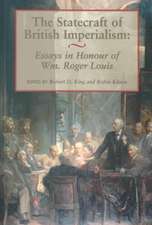


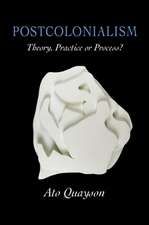
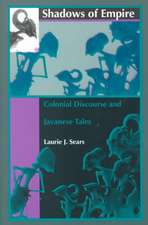
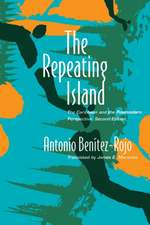

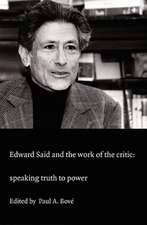
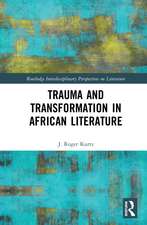
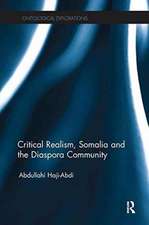
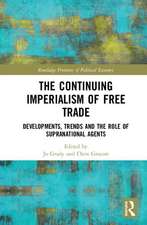
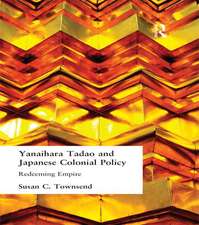
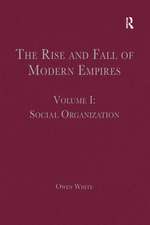

![Science, Colonialism and Ireland [Op]](https://i0.books-express.ro/bt/9781859181850/science-colonialism-and-ireland-op.jpg)